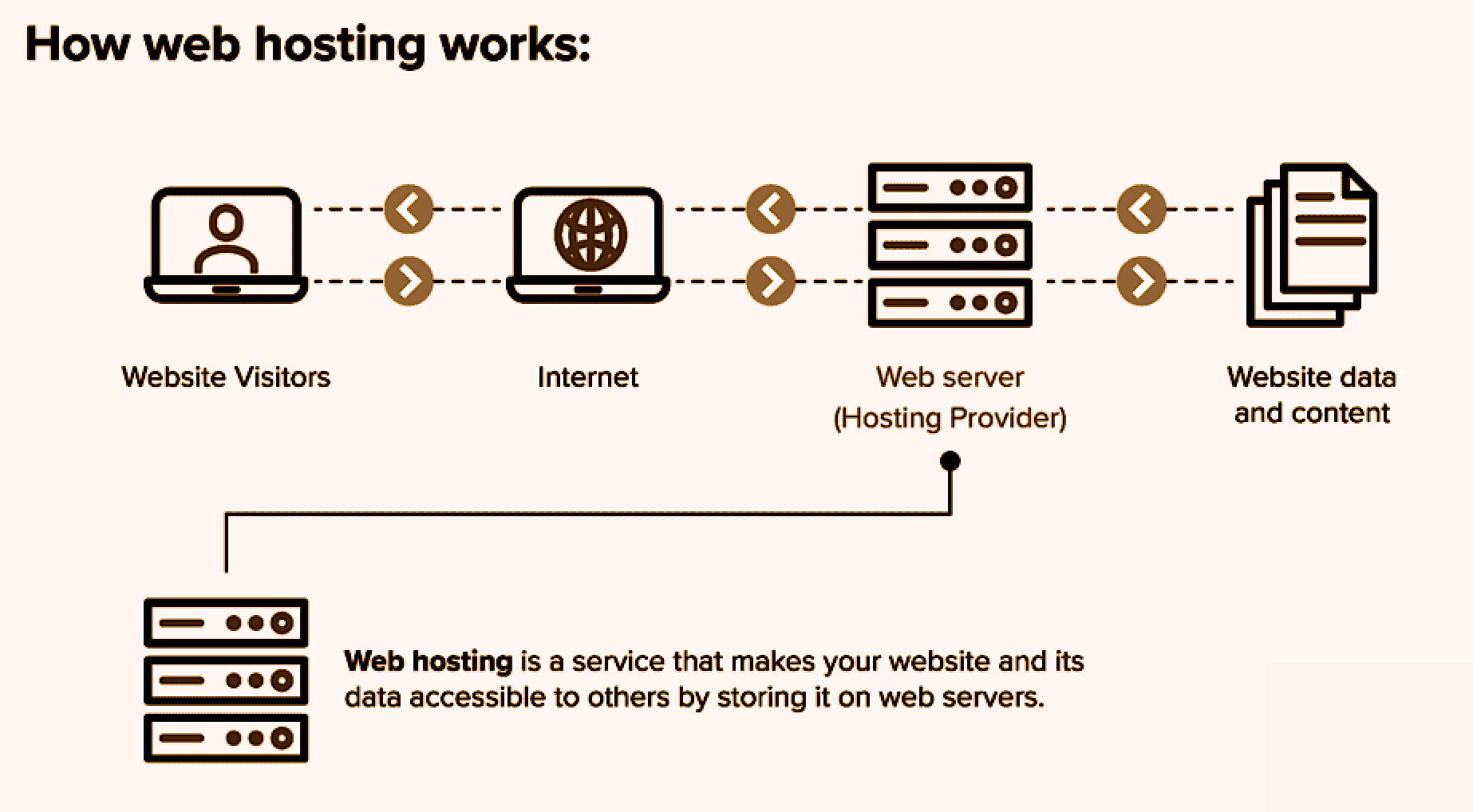
What is Web Hosting? A Complete Guide to Website Hosting Services
Estimated reading time: 11 minutes
Key Takeaways
- Web hosting allows individuals and organizations to make their websites accessible on the internet.
- Understanding different types of web hosting helps you choose the right service for your website.
- Uptime is critical for your website’s accessibility; downtime can negatively impact your visitors and reputation.
- Knowing common hosting issues and their solutions can improve your website’s performance.
- Quality web hosting support is essential for resolving technical issues promptly.
- Migrating your website hosting requires careful planning and execution to avoid downtime.
Table of contents
- What is Web Hosting? A Complete Guide to Website Hosting Services
- Key Takeaways
- What is Web Hosting: A Detailed Look
- How Does Web Hosting Work?
- Types of Web Hosting
- Hosting Uptime vs Downtime: Why It Matters
- Common Hosting Issues and Solutions
- Web Hosting Support: A Critical Factor
- How to Migrate Website Hosting
- Conclusion
Web hosting is a service that allows individuals and organizations to make their websites accessible on the internet. When you invest in web hosting, you’re essentially renting space on specialized computers called servers that store your website’s files and make them available to visitors worldwide.
Think of web hosting as your website’s home on the internet. Without it, your site would have nowhere to live and no way for visitors to find it.
What is Web Hosting: A Detailed Look
Web hosting services provide the essential infrastructure that keeps websites running smoothly online. This includes:
- Server space to store your website files
- Internet connectivity to make your site accessible
- Technical support to handle any issues
- Security features to protect your website
- Tools for managing your website
Your web host maintains powerful servers with specialized software, security measures, and high-speed internet connections—all crucial components that work together to keep your website available 24/7.
How Does Web Hosting Work?
When someone types your website address into their browser, a fascinating process begins:
- The browser sends a request to your web host’s servers
- The servers locate your website files
- These files are sent back to the visitor’s browser
- The browser assembles the files to display your website
Types of Web Hosting
Different websites have different needs, which is why several hosting types exist:
- Multiple websites share one server
- Most affordable option
- Perfect for small websites
- Limited resources and control
VPS (Virtual Private Server) Hosting
- Dedicated portion of a server
- Better performance than shared hosting
- More control over your environment
- Suitable for medium-sized websites
- Entire server dedicated to one website
- Maximum performance and control
- Highest security level
- Ideal for large, high-traffic websites
- Website hosted across multiple servers
- Excellent scalability
- High reliability
- Good for varying traffic levels
Hosting Uptime vs Downtime: Why It Matters
Uptime refers to when your website is accessible to visitors. According to studies, top hosting providers aim for 99.99% uptime, though even the best services experience some downtime.
Impact of Downtime:
- 77% of visitors leave websites that aren’t working
- 60% won’t return after a bad experience
- Lost revenue and damaged reputation
- Decreased search engine rankings
Research shows that shared hosting platforms average about 35 hours of downtime annually or roughly 3 hours per month. [Source]
The best hosting providers offer uptime guarantees and compensation if they fail to meet their promised availability levels. [Learn more]
Common Hosting Issues and Solutions
Understanding common hosting problems helps you prevent and address them effectively:
Slow Loading Times
- Causes: Overloaded servers, poor optimization, insufficient resources
- Solutions: Choose appropriate hosting plan, optimize website, use CDN
Security Vulnerabilities
- Causes: Outdated software, weak security measures
- Solutions: Regular updates, security plugins, SSL certificates
Limited Storage
- Causes: Restrictive hosting plans, large media files
- Solutions: Upgrade hosting plan, optimize media, use external storage
Web Hosting Support: A Critical Factor
Quality hosting support can make or break your website experience. Look for providers offering:
24/7 Support Availability
- Immediate assistance during emergencies
- Multiple support channels
- Technical expertise
Support Features to Consider:
- Live chat support
- Phone support
- Email tickets
- Knowledge base
- Video tutorials
How to Migrate Website Hosting
Whether upgrading or switching providers, follow these steps for smooth hosting migration:
- Backup Everything
- Website files
- Databases
- Email accounts
- Configuration files
- Prepare the New Host
- Set up hosting account
- Configure server settings
- Install necessary software
- Transfer Files
- Upload website files
- Import databases
- Test functionality
- Update DNS Settings
- Point domain to new host
- Allow 24-48 hours for propagation
- Monitor for issues
Migration Tips:
- Choose low-traffic periods
- Keep old hosting active during transition
- Test thoroughly before switching
- Document all changes
- Have support contacts ready
[Learn more about choosing a web hosting provider]
Conclusion
Web hosting is the foundation of your online presence. The right hosting service ensures your website remains accessible, secure, and performs well for visitors. When choosing a web host, consider:
- Uptime guarantees
- Support quality
- Security features
- Scalability options
- Performance metrics
- Price vs. value
Remember that your choice of web hosting directly impacts your website’s success. Take time to evaluate your needs and select a provider that offers the right balance of features, support, and reliability for your specific situation.
Whether you’re launching a new website or managing an existing one, understanding web hosting fundamentals helps you make informed decisions and maintain a strong online presence.